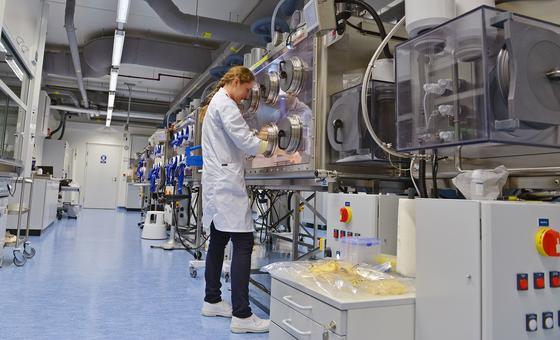Nuclear Watchdog Chief Announces Breakthrough on Iran Monitoring
International affairs correspondent with extensive experience covering global politics, diplomacy, and cross-border issues

In a significant development for global nuclear oversight, the head of the United Nations' atomic energy agency has announced a breakthrough agreement with Iran to resume inspections of its nuclear facilities. This marks a pivotal moment in international diplomacy, following months of stalled oversight and heightened tensions in the region.
The International Atomic Energy Agency (IAEA) chief, Rafael Grossi, revealed the agreement on Wednesday, indicating a crucial step forward in the oversight of Iran’s nuclear activities. This announcement follows a period of suspended monitoring that began in June after targeted airstrikes by Israel and the United States on Iranian nuclear sites. Grossi emphasized the importance of resuming 'indispensable' monitoring, describing the new agreement as a 'practical step' that follows technical discussions held in both Tehran and Vienna. The negotiations, aimed at restoring a comprehensive inspection regime, were pivotal in re-establishing trust and cooperation.
The announcement also coincides with France, Germany, and the UK’s decision to trigger the 'snapback' mechanism to reimpose UN sanctions on Iran. This mechanism is part of the Iranian nuclear agreement signed in 2015, known formally as the Joint Comprehensive Plan of Action (JCPOA). The agreement had been in jeopardy following Iran’s decision to suspend cooperation with the IAEA, a move that was subsequently endorsed by the nation's president. Despite these challenges, Grossi highlighted that Iran’s obligations under the international non-proliferation treaty remain unchanged, underscoring the continued legal framework governing nuclear activities.
The agreement reached in Cairo between Grossi and Iranian Foreign Minister Abbas Aragchi outlines clear procedures for inspections and notifications. It also addresses the reporting of facilities affected by the June airstrikes, ensuring transparency about nuclear materials present in Iran. This development is crucial not only for maintaining international oversight but also for addressing the concerns raised by Iran regarding its security and sovereignty.
While the IAEA acknowledges potential challenges in implementing the new agreement, Grossi remains optimistic about the path ahead. The resolution of these complex issues requires continued dialogue and adherence to the agreed modalities. This breakthrough is a testament to the power of diplomacy and the international community's commitment to nuclear non-proliferation, setting a precedent for future negotiations.
About Alex Rivera
International affairs correspondent with extensive experience covering global politics, diplomacy, and cross-border issues